Married couple dedicate themselves to protecting nature reserve's ecosystem, following in the footsteps of the husband's father, Yang Jun and Tu Jiayi report in Guiyang, Guizhou province.
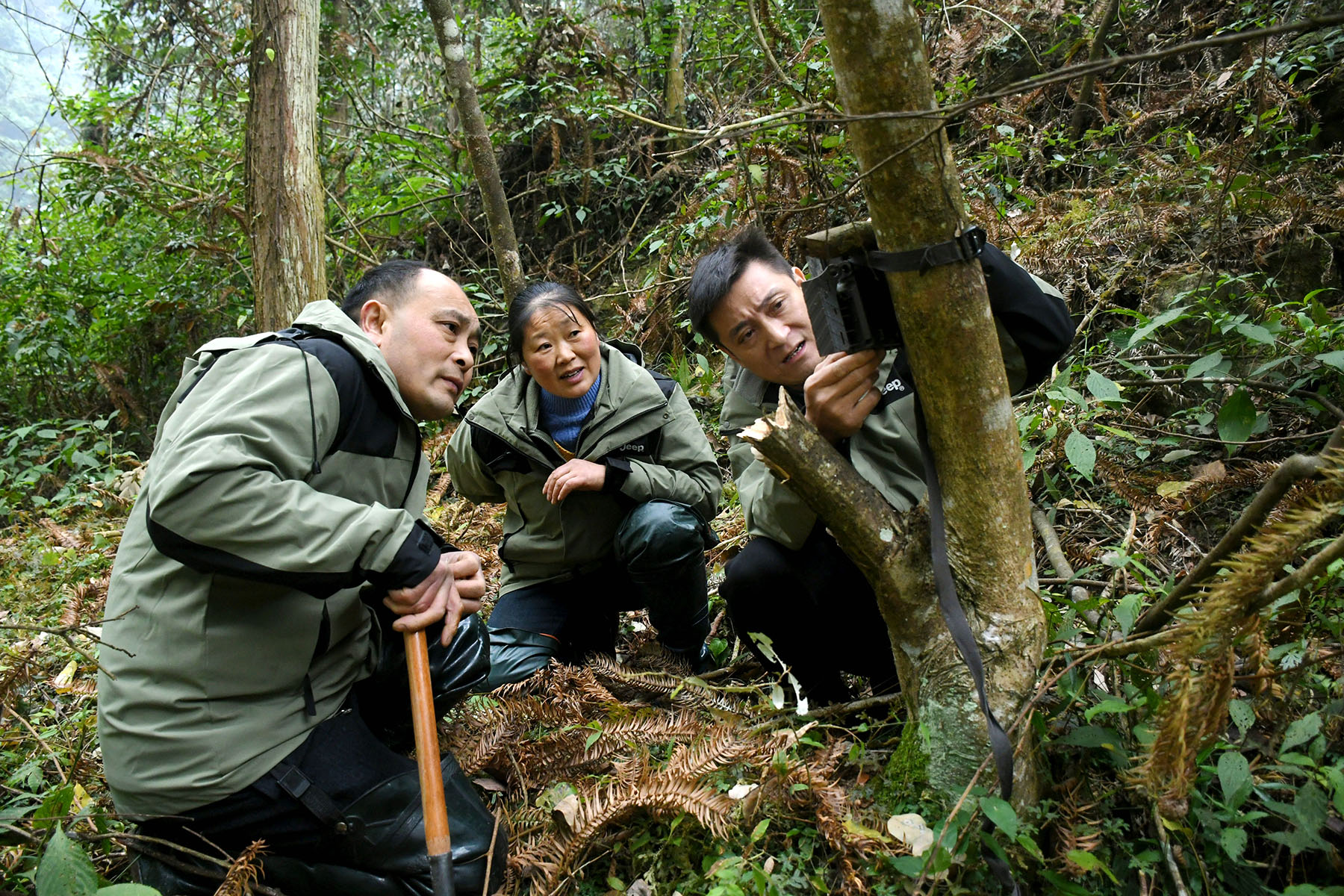
During the Spring Festival holiday, a family remained steadfast at their post in the Xiannyu Cave (Fairy Cave) management station of the Dashahe Nature Reserve in Guizhou province, celebrating the vacation time doing guard duty. The dedicated couple Zhao Deling and Sheng Mingfen oversee nearly 7,000 mu (467 hectares) of protected areas, ensuring the safety of wild animals and greenery.
Dashahe Nature Reserve was established in 1984. With a total area of 26,990 hectares, it is a forest ecosystem nature reserve focusing on the protection of rare and endangered species such as Cathaya argyrophylla (commonly known as the Cathy silver fir) and Trachypithecus francoisi (Tonkin langur), as well as their natural habitats.
READ MORE: Guizhou is an adventurer's paradise
Elevated to a provincial-level nature reserve in 2001 and further upgraded to national-level in May 2018, the reserve's conservation efforts are commendable.
Zhao, 50, serves as a forest ranger in the reserve, while his wife Sheng joined the team in 2020 after another ranger retired.
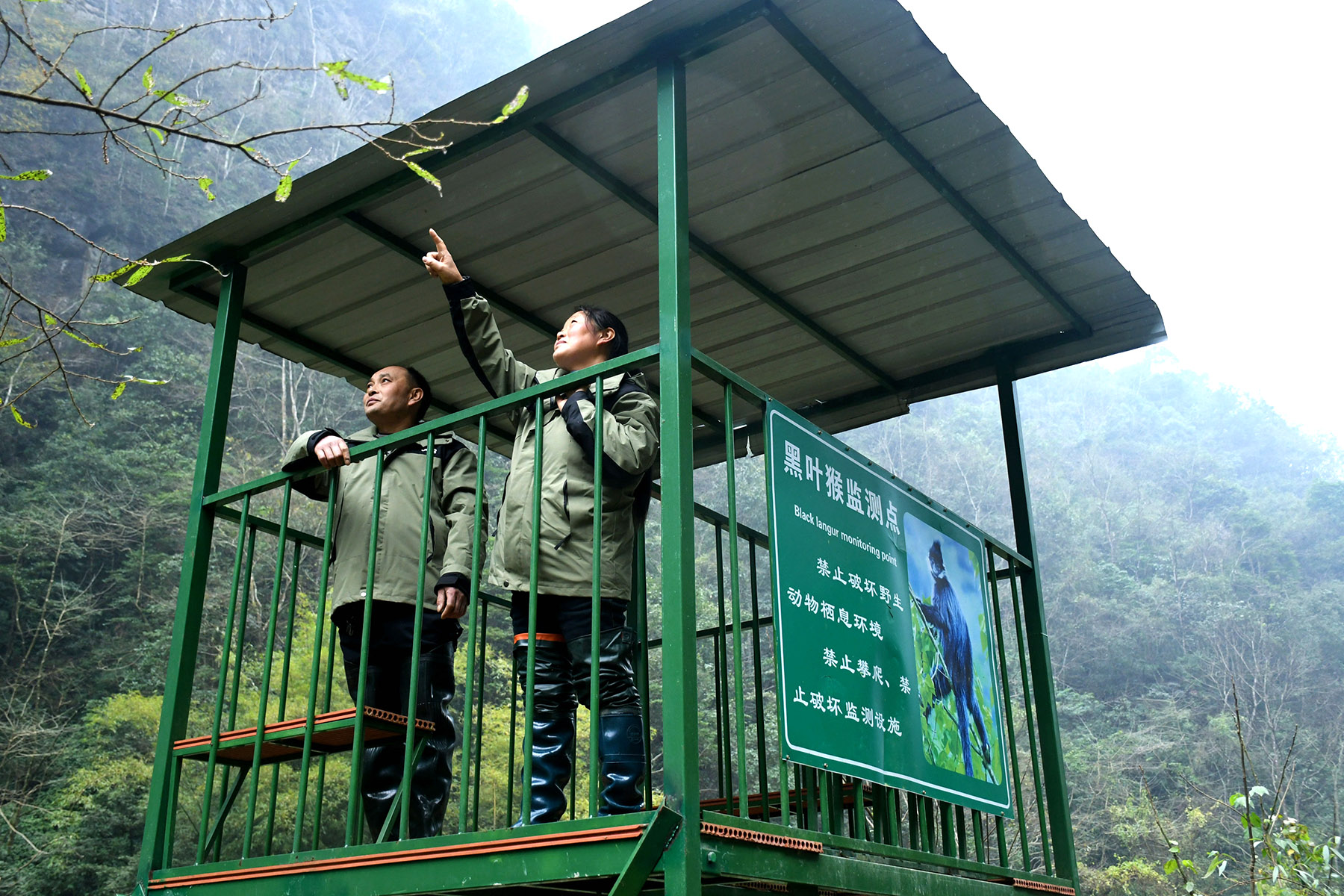
Located within the Daozhen Gelao and Miao autonomous county in Zunyi city, the management station can be reached by following a winding downhill road to the forest fire prevention checkpoint where Zhao and Sheng are stationed. This checkpoint is a crucial access point to the protected area, requiring round-the-clock surveillance year-round.
As forest rangers, Zhao and Sheng commence their duties at dawn. One is responsible for guarding the checkpoint to prevent unauthorized entry, while the other patrols the forest, navigating 13 river bends. Their tasks include recording the growth and activities of wild flora and fauna, managing waste washed downstream, clearing weeds around boundary markers, signs and infrared camera equipment, and regularly replacing memory cards in the infrared cameras for data collection and retrieval.
Excluding inclement weather periods, completing one round-trip patrol takes over three hours. Between winter and spring, the river is biting cold, but Zhao steps right in every day, saying, "It's fine once you get used to it".
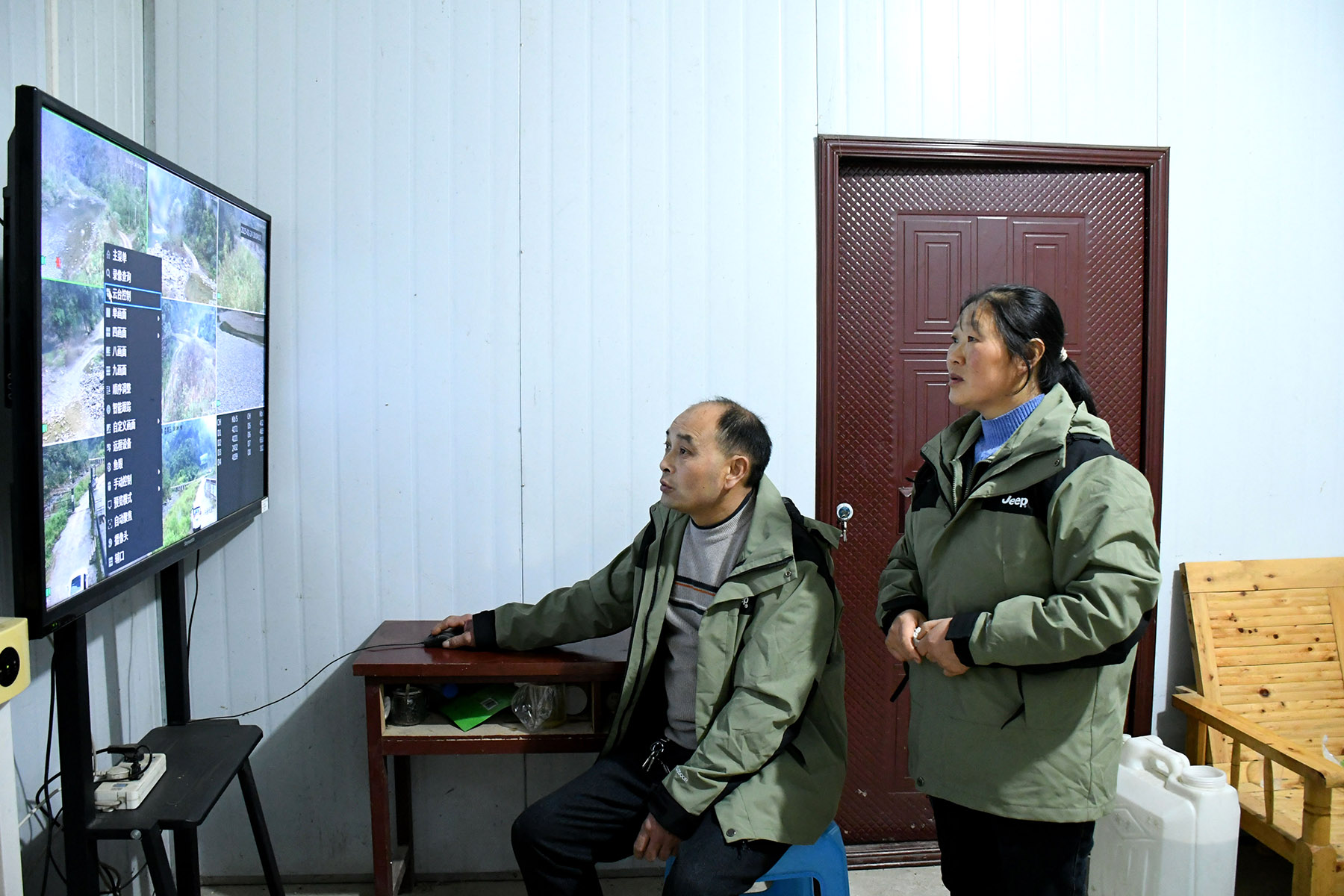
Although there are no developed roads in the protected area, it still does not stop people from sneaking in. "A momentary lapse can allow people to slip in unnoticed," he adds.
The checkpoint is near Chongqing and during summer, many people arrive to escape the heat. There is an iron gate that cannot fully block the riverbanks. During the non-flood season, it is possible to walk along the shallow riverbeds deep into the core protected area.
The couple can't relax for a moment from dawn until midnight. There are some people who, when told this is a core protection area and entry is prohibited, will leave, but there are a few, who don't respect the rules. The ecosystem is frail here and is home to many endangered species. They must report any trespassing to the management station and make sure they escort those people out.
Some people also enter through mountain trails for fishing or hiking. This is why patrols cannot be interrupted for even a moment. Along the way, if they find such individuals, they must persuade them to turn back. This is not only to protect the plant and animal habitat but also to ensure the visitors' safety.
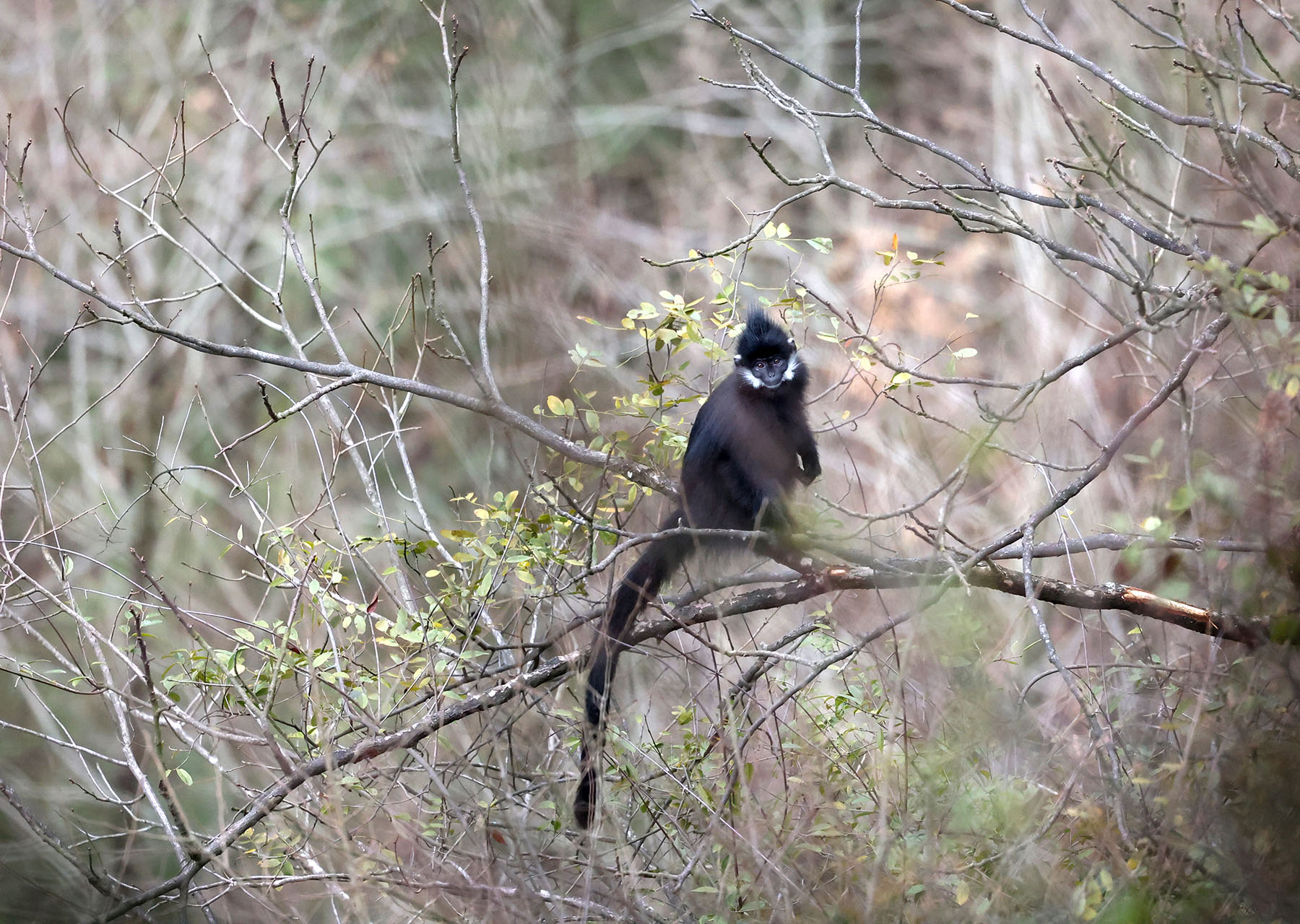
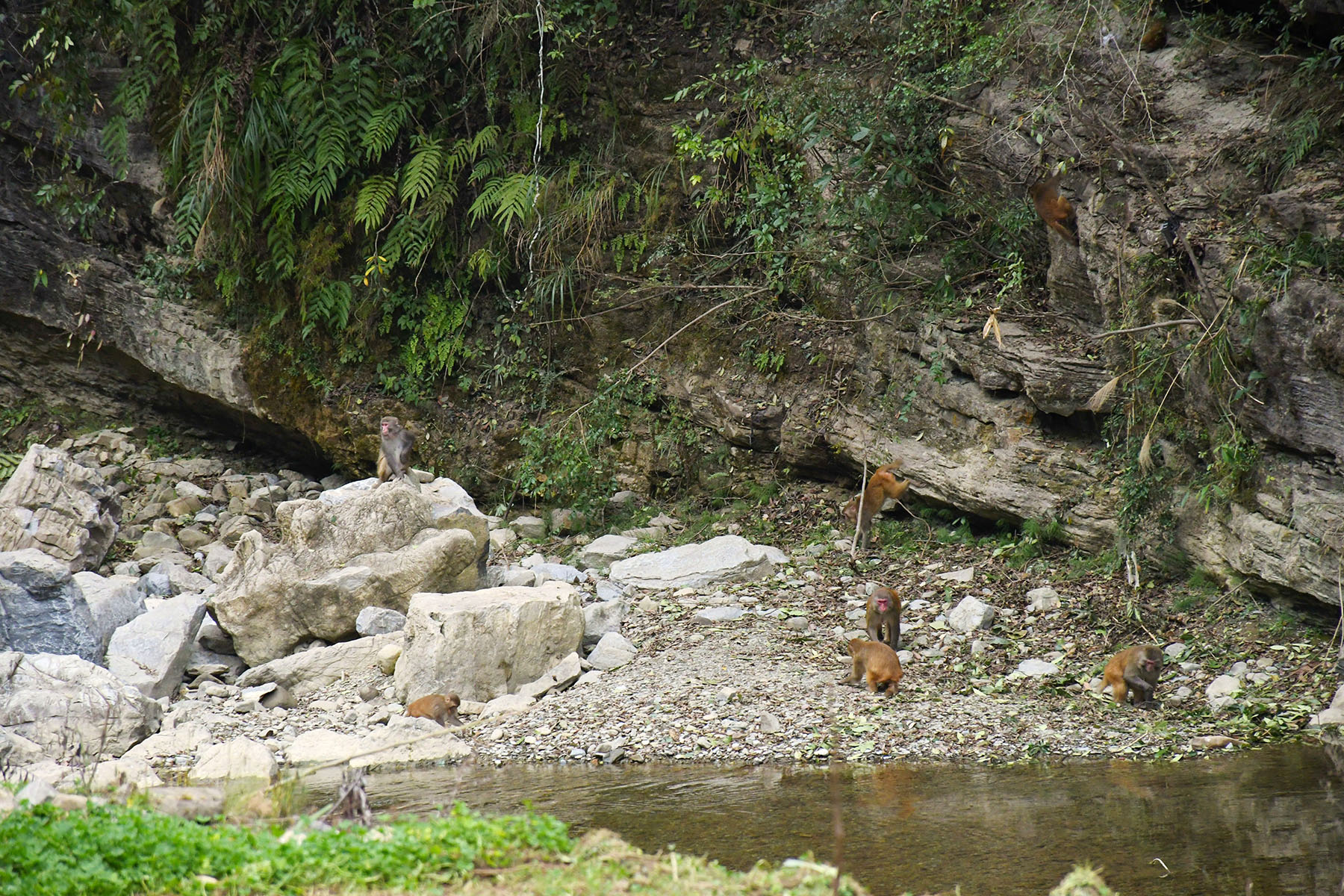
Loneliness is inevitable. The network connection at the checkpoint is very weak and the core of the protected area is isolated. During their daily three-hour patrols, they never know what kind of wildlife they will encounter that could put their lives at risk. However, intriguing occurrences help the couple confront the solitude.
"Observing the changes along our path makes time pass easily. You can find many subtle changes day by day," Zhao remarks. "For instance, if you find the bush collapsed in a section, it means wild boars were there looking for food. In winter, we feed the macaques regularly. Every time we clang the bowls, they flock to us. If we forget to give them food on time, they shake the branches angrily, like little kids."
To feed the macaques, Sheng prepares peanuts, corn and walnuts. She cracks the nuts carefully to make them easier to eat.
In 2003, Zhao's father, a former village cadre, assumed the role of station chief for an artificial ecological public welfare forest construction project within the reserve. Leveraging his local influence, he mobilized nearby villagers to partake in tree planting and protection efforts. Within a year, 15,000 mu of forest were planted, laying the groundwork for a substantial increase in forest coverage.
In 2005, Zhao succeeded his father in this position, dedicating himself to guarding the area and embracing the forest as his home, following in his father's footsteps.
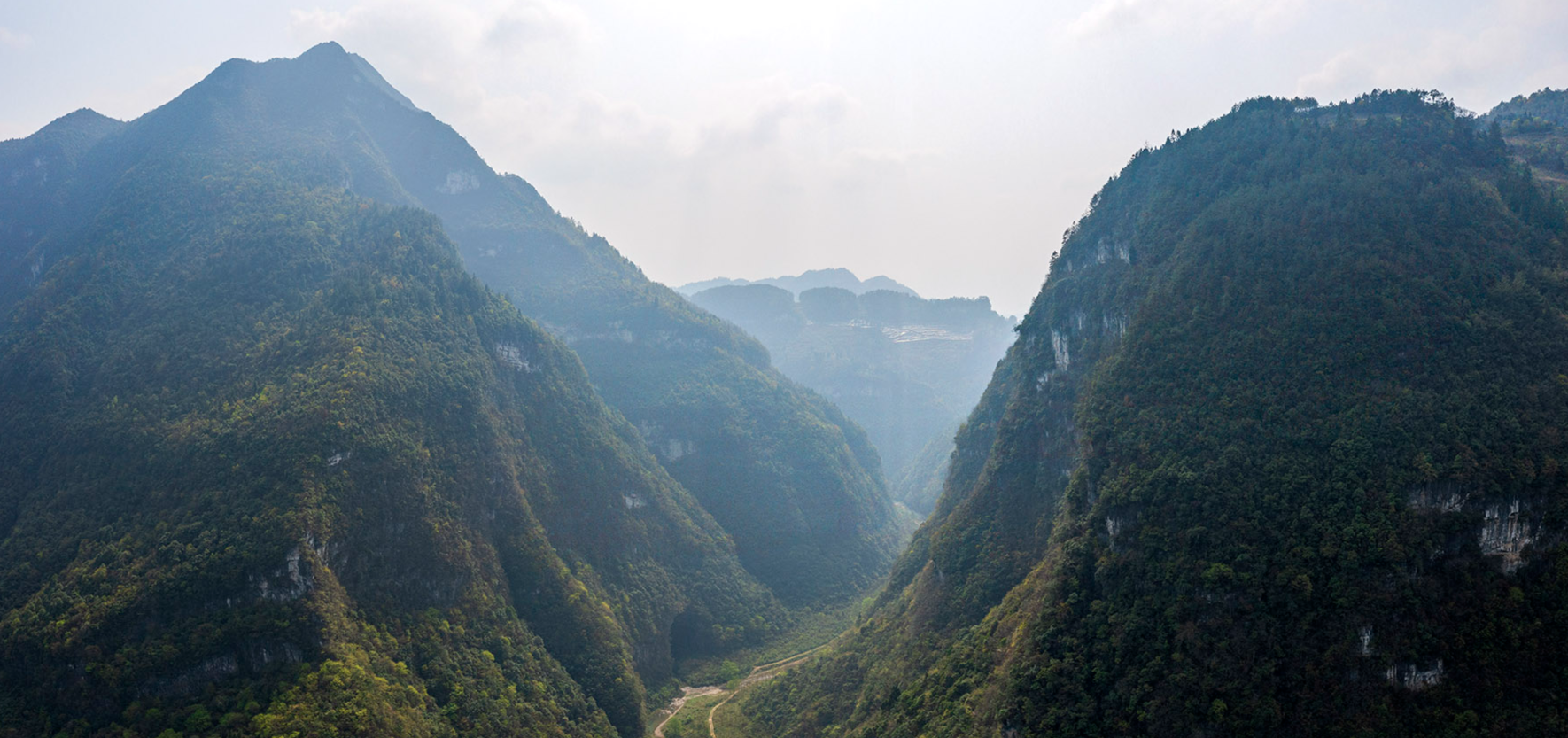
Through their hard work generation by generation, the forest coverage of Dashahe Nature Reserve has significantly increased from 61.79 percent in 2002 to 84.67 percent in 2024. Currently, the reserve is home to 27 groups of Tonkin langur, totaling 166 individuals.
With improvements to the ecological environment, the population of wild macaques is also steadily increasing, with over 1,200 macaques now residing within the reserve. Behind these numbers is the hard work and unwavering dedication of the forest rangers.
ALSO READ: Six Chinese sites named UNESCO Global Geoparks
Having known each other since their early teens while living in the same village, Zhao and Sheng built a family and raised two daughters. Their elder daughter works in Sichuan province while the younger daughter attends high school. During Spring Festival, their daughters visit the checkpoint for a family reunion, bringing food specialties and more to mark the occasion and celebrate the coming New Year.
"Maybe the station is not as good as the house in the village, but once our family is together, happiness fills every corner of the checkpoint," Sheng says.
Zhao Yandi contributed to this story.
Contact the writers at tujiayi@chinadaily.com.cn


